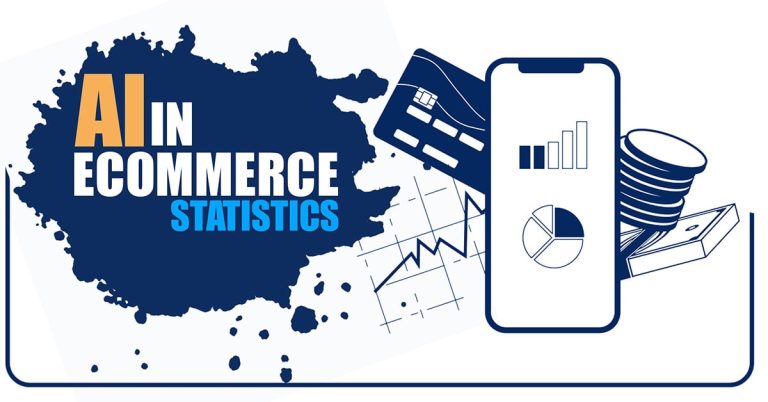Five Ways AI Can Boost Profit & Sales in E-Commerce
In the dynamic landscape of E-Commerce, businesses continually seek innovative approaches to boost profitability and sales. Artificial Intelligence (AI) emerges as a transformative force, offering advanced tools and strategies to enhance competitiveness and drive growth. In this blog post, we delve into five effective ways AI can amplify profit and sales in e-commerce.
*E-commerce Sales*
Boosting E-Commerce sales involves a combination of strategies such as optimizing your website for conversions, leveraging social media marketing, email marketing campaigns, offering discounts or promotions, providing excellent customer service, and utilizing analytics to understand customer behavior.
*E-commerce Business for Sale*
Selling an E-Commerce business involves various steps such as valuing your business, preparing documentation, finding potential buyers, negotiating terms, and completing the sale. Platforms like Shopify Exchange and Flippa facilitate the sale of E-Commerce businesses.
*E-commerce Sales Strategy*
An effective E-Commerce sales strategy should include elements such as understanding your target audience, optimizing product listings for search engines (SEO), offering personalized recommendations, providing a seamless checkout process, implementing upselling and cross-selling techniques, and continuously analyzing and optimizing performance.
*AI in E-Commerce*
AI is revolutionizing the E-Commerce industry by enabling personalized shopping experiences, improving product recommendations, optimizing pricing strategies, automating customer service through chatbots, detecting fraudulent transactions, and enhancing supply chain management.
5 ways AI can boost your profit and sales:
1. Personalized Shopping Experience:
AI-powered recommendation systems revolutionize the online shopping experience by offering personalized product suggestions tailored to individual preferences. By analyzing user behavior, purchase history, and demographic data, AI algorithms can accurately predict customer needs and preferences, leading to increased sales and customer satisfaction. Implementing personalized recommendations not only enhances the shopping journey but also cultivates customer loyalty, driving long-term profitability.
2. Predictive Analytics for Demand Forecasting:
In the realm of E-Commerce, predicting consumer demand is paramount for optimizing inventory management and supply chain operations. AI-driven predictive analytics leverage historical sales data, market trends, and external factors to forecast future demand with precision. By anticipating fluctuations in consumer demand, businesses can optimize inventory levels, minimize stockouts, and capitalize on emerging market opportunities. Through proactive decision-making enabled by AI, E-Commerce enterprises can enhance efficiency and maximize profitability.
3. Dynamic Pricing Strategies:
AI-powered dynamic pricing algorithms enable E-Commerce Retailers to adjust prices in real-time based on market dynamics, competitor pricing, and consumer demand. By analyzing vast amounts of data, including competitor pricing strategies, customer behavior, and market trends, AI algorithms can determine optimal pricing strategies to maximize revenue and profit margins. Dynamic pricing empowers E-Commerce businesses to respond swiftly to changing market conditions, optimize pricing decisions, and capitalize on demand fluctuations, ultimately driving sales and profitability.
4. Enhanced Customer Service with Chatbots:
AI-driven chatbots revolutionize customer service in E-Commerce by providing instant, personalized assistance to shoppers 24/7. Equipped with natural language processing (NLP) capabilities, chatbots can understand and respond to customer inquiries, resolve issues, and provide product recommendations in real-time. By automating routine customer interactions, chatbots streamline the shopping experience, reduce response times, and enhance customer satisfaction. Additionally, AI-powered chatbots can gather valuable insights from customer interactions, enabling E-Commerce businesses to identify trends, improve service offerings, and drive sales growth.
5. Fraud Detection and Prevention:
In the digital realm of E-Commerce, fraud poses a significant threat to profitability and reputation. AI-powered fraud detection systems leverage machine learning algorithms to analyze transaction data, detect suspicious patterns, and identify fraudulent activities in real-time. By continuously monitoring transactions and assessing risk factors, AI algorithms can prevent fraudulent transactions before they occur, safeguarding E-Commerce businesses from financial losses and reputational damage. With AI-driven fraud detection, E-Commerce enterprises can enhance security measures, protect customer data, and uphold trust, fostering sustained growth and profitability.
*AI Tools for E-commerce*
There are various AI tools and platforms available for E-Commerce businesses, including:
– Chatbots for customer service automation (e.g., Drift, Intercom).
– Recommendation engines for personalized product suggestions (e.g., Dynamic Yield, Barilliance).
– Predictive analytics tools for forecasting demand and optimizing inventory management (e.g., IBM Watson, Demand Forecasting by Lokad).
– Image recognition technology for visual search and product tagging (e.g., Clarifai, ViSenze).
– Natural Language Processing (NLP) tools for sentiment analysis and understanding customer feedback (e.g., Monkey Learn, Lexalytics).
– Pricing optimization algorithms for dynamic pricing strategies (e.g., Prisync, Perfect Price).
Conclusion:
In the dynamic Landscape of E-Commerce, staying ahead requires a strategic blend of innovation and adaptability. As we’ve explored, maximizing sales in e-commerce involves not only leveraging traditional marketing techniques but also embracing the transformative power of artificial intelligence.
For MarticKing and businesses alike, recognizing the significance of AI integration can’t be overstated. Whether it’s optimizing sales strategies, refining customer experiences, or enhancing operational efficiencies, AI tools offer a competitive edge in an increasingly crowded marketplace.


